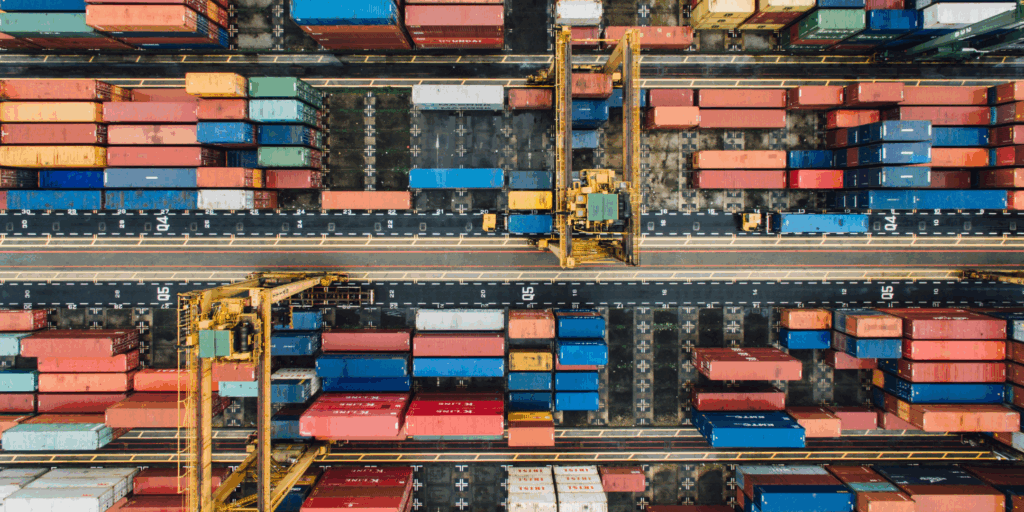

Megan Lim
Economics Strategy


Swee Cheng Wei
Economics Strategy


E-commerce has been described as the “great equalizer”. In the past, it was commonly acknowledged that companies had to be big to export. Only multinational corporations with vast resources and access to international marketing and logistics networks possessed the capabilities to internationalize. With e-commerce, micro-, small- and medium-sized enterprises (MSMEs) can now export at significantly lower costs than before. E-commerce therefore provides a platform for local businesses, especially MSMEs, to easily access a growing pool of foreign customers.
Globally, Southeast Asia leads in terms of e-commerce adoption. In recent years, rapid growth in business e-commerce adoption has occurred amidst rising Internet and smartphone penetration rates, as well as growing population of digital natives.[1] Due to the COVID-imposed restrictions, consumers avoided visiting traditional brick-and-mortar retail stores and opted to purchase goods and services online. Hence, e-commerce adoption and usage has increased significantly over the past few years, and this shift towards online shopping is likely to persist due to the increased convenience for consumers.[2] As a result, in Southeast Asia alone, the number of online shoppers is projected to increase threefold from 2015 to reach 310 million by 2025, and the average annual spend of an online shopper is expected to increase from $60 to $392 in the same time period.[3]
While countries in the region are already experiencing significant e-commerce growth domestically, the biggest economic prize is likely to lie beyond national borders. Cross-border e-commerce is becoming an increasingly important channel for companies to reach foreign customers quickly and easily. In recent years, more consumers have started purchasing from overseas sellers due to the unavailability of products domestically and the growing ease of access to more affordable and higher-quality products online.[4] Cross-border business-to-consumer (B2C) sales in the APAC region was valued at $476 billion in 2020, accounting for 31% of total B2C e-commerce sales in the region, and this is estimated to increase further with the prevalence of e-commerce in the region.[5]
Based on AlphaBeta analysis, the annual value of B2C e-commerce exports is estimated at a combined $12 billion for five Southeast Asian countries – Malaysia, the Philippines, Singapore, Thailand, and Vietnam.[6] Of this, Malaysia accounts for the largest value at $4 billion, followed by Thailand at $3.6 billion, Vietnam at $3.3 billion, Singapore at $1 billion and the Philippines at $179 million. Malaysia’s significant e-commerce export value can be attributed to its large manufacturing sector (representing 23% of the country’s Gross Domestic Product in 2021[7]), moderately strong logistics infrastructure (ranked 41st out of 160 countries in World Bank’s Logistics Performance Index[8]) and high share of banked population at 85%.[9] These B2C e-commerce export values are all substantial: if B2C e-commerce were an export category, it would rank among the top 10 export categories in each country.


However, there is potential for countries in the region to go further. Today, despite accounting for over 95% of all enterprises, MSMEs in the five countries are earning only 25% to 45% of the overall e-commerce export value. If MSMEs were to accelerate the rate at which they export via e-commerce over the next five years, the annual value of B2C e-commerce exports could grow at least threefold from 2021 levels to reach $39.4 billion in 2026 (“MSMEs Take Charge” scenario).[10]


Despite the tremendous growth opportunities posited by cross-border e-commerce, MSMEs face several barriers to capturing them. Based on an AlphaBeta survey conducted with MSMEs in Singapore, Thailand, and Vietnam in 2021, the most common barriers faced by MSMEs are regulatory and cost barriers. These include the high cross-border logistics costs, stringent consumer protection laws in foreign countries, and high customs duties charged on online foreign trades, with more than 80% of MSMEs continuing to face challenges in these areas despite existing government initiatives.
With less than a quarter (in relevant industries such as retail) of MSMEs adopting e-commerce in each of the three countries, it is imperative that governments ramp up on existing efforts as e-commerce continues to serve as a critical channel for most MSMEs to export. Based on an AlphaBeta survey conducted with MSMEs in Singapore, Thailand, and Vietnam in 2021, going global is a business priority over the next five years, and MSMEs in all three countries anticipate greater sales growth prospects in overseas countries than at home. Additionally, 88% of surveyed MSMEs believe that they would be unable to export at all without e-commerce.
In order to unlock the significant e-commerce potential, it is crucial that governments develop policies and programs to help MSMEs tackle the barriers faced when exporting via e-commerce. To tackle cost barriers faced by MSMEs, governments in the region can consider extending financial support to these businesses. For example, the South Australian government’s “eCommerce Accelerator Program (eCAP)” supports MSMEs interested in selling their goods or services digitally and globally by allowing new e-commerce sellers to access funds with no upfront investments required, and providing sellers with more advanced e-commerce capabilities with one-to-one matched funding from the government.[11] Similarly, to tackle the regulatory barriers faced, governments can also consider developing bi-lateral or multi-lateral trade agreements and establish key principles under which free cross-border e-commerce data flows may take place across borders. An example is the “Digital Economy Agreement” (DEA) between Singapore and Australia, which establishes digital trade rules and digital economy collaborations between the two countries.[12] The DEA enables Singapore to develop international frameworks for interoperable standards and systems, and support companies, especially MSMEs, in their e-commerce export efforts.[13] These frameworks are valuable in reducing the regulatory uncertainty faced by MSMEs when exporting online.
Given the growing prominence of e-commerce in this post-pandemic world, it is critical that an enabling environment is created to support MSMEs in capacity and capability building, allowing them to access global markets successfully.
For more information and to work with us on digital trade issues, please contact Cheng Wei Swee and Megan Lim.
This article draws on our work on the E-commerce Export Opportunity in Southeast Asia, Value of Digital Trade in the Asia Pacific, and the E-commerce Economic Opportunity in Latin America.



